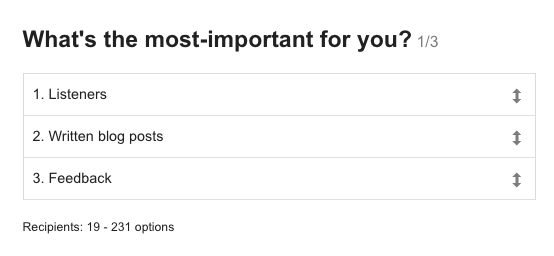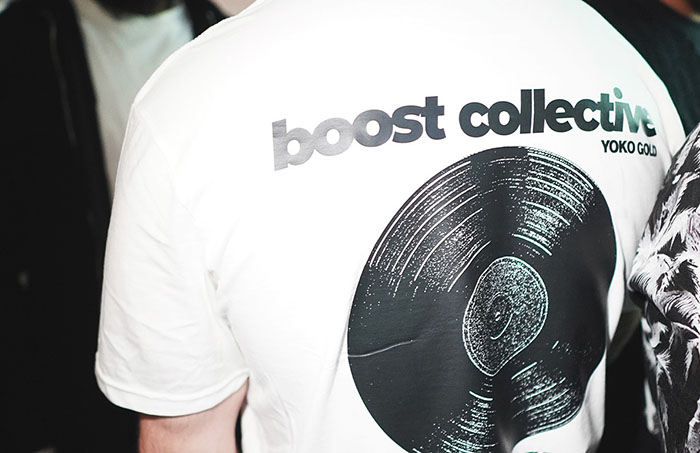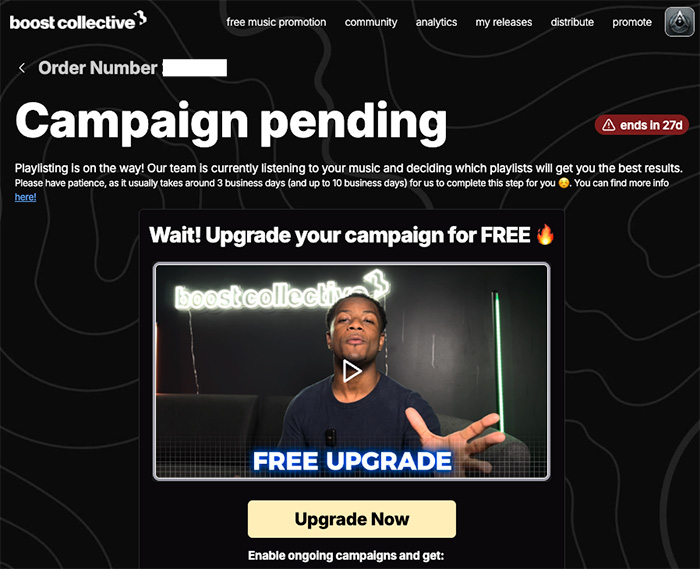
As a marketer of music, I am always looking for new tools to add to my toolbox. Music promotion has changed a lot in the last decade, transitioning away completely from full length albums to this new era of the eternal single. I still enjoy the process of marketing a full length album, because of the flexibility that comes with having a number of singles to choose from: the cadence of single releases, and the order of them, can have a huge impact on the results of the overall campaign. But, often enough, a given artist just has the one song that they want to promote, which means that one of the only variables left in order to optimize the promotion of that song is to correctly choose the genre. The 'genre-identifier' from SubmitHub is a good tool for that, which uses AI to guess the relevant genres for a given track. I've had pretty good success with that, which helps optimize a campaign to put the song in front of curators and bloggers that have a connection to the genre itself. On a few recent projects, I decided to put a small amount of the budget into a few other promo sites that could be considered competitors to SubmitHub. I'd like to share some of my results here. if you're looking for a comparative review between BoostCollective, SoundCampaign, and SubmitHub, you've come to the right place.
What is the Point Here?
It's worth asking the simple question, what are we even trying to accomplish with music marketing these days? As an independent marketer, this is an important question to ask. Often it feels like it's impossible to move the needle in a smaller capacity, when large music labels have budgets in the tens or even hundreds of thousands of dollars to promote a given release. From my perspective, this is the wrong way to approach the problem. As I say to my young son often enough, comparison is the thief of joy. Not everyone has a massive marketing budget to promote their new single. But that doesn't mean you can't create meaningful inroads with a given market segment, even on a relatively small budget. The key is to be as specific as possible, both with regard to genre as well as expected outcome. To this end, I have to say that SubmitHub has the most evolved campaign builder, because you're able to optimize any campaign to focus on a mixture of playlisters, bloggers, or social media shares. Using the 'choose for me' option, you can prioritize what is most important: new adds for streaming playlists, written blog coverage, or a mixture of both. Campaigns can also be targeted directly to influencers on TikTok and Instagram.
 SubmitHub allows granular control around what kind of coverage you are looking for.
SubmitHub allows granular control around what kind of coverage you are looking for.I've been using SubmitHub for about seven years now, and I've seen it evolve considerably in that time. Although it's not perfect, and I've had some campaigns do way better than others, I do feel strongly that it is a product that continues to optimize for fairness and transparency. If you do your homework in terms of which outlets to submit to, and most importantly, what genre to specify, as long as there is enough budget there to create enough data points for a normal distribution, you should have a reasonable outcome. For me, SubmitHub has become the baseline. When I take on a new marketing project, I will typically allocate a large share of the budget to a SubmitHub campaign, and then look for other outlets to create more diversity. So now let's talk about what happened when I did that with SoundCampaign and BoostCollective. But before we do that, let's be clear about what we're looking for: there may have been a time when simply paying a bot network to artificially augment the streaming numbers for an artist was a reasonable decision to make. This is not the world we are living in now. Fake streaming numbers will get flagged, and are far worse than just a waste of money. In some cases, songs can be permanently banned, or artist profiles can be removed entirely. So the most important thing to look for when allocating budget for a marketing campaign is legitimacy. We are trying to put the right song in front of the right people so that they will be organically encouraged to add this new song to their playlist. Because of this, results cannot be guaranteed, so you shouldn't expect that. Some songs will be more successful than others. C'est la vie.
SoundCampaign: a Reasonable Product With a Very Small Network

I tried this service for two different marketing campaigns that I was working on, and frankly, I was disappointed both times. First, I was frustrated by the lack of available outlets. The first project I was working on was a bit more of an edge case in terms of a jazz instrumental, and I could not find the right genre tag to support this campaign. I floated between Latin, Jazz, Jazz saxophone, & Instrumental acoustic guitar, and in total found five outlets. Over the course of an entire month, only 15% of the allocated budget was utilized. From my perspective, these tags shouldn't even be allowed if there are so few outlets to support them. Which is why for the next project–an indie pop track with a driving beat and a very dynamic arrangement–I was very surprised by the lack of engagement. Indie pop is their most popular genre. This project burned through the entire available budget quite quickly, with just barely a 5% approval rate. The average cost of a submission was almost $7, which, for comparison, is more than three times the average price on SubmitHub. So, overall, SoundCampaign as compared to SubmitHub was more expensive, less extensive, and offered a dismal approval rate, that was compounded by the relative cost of each submission. For roughly the same budget, I was able to submit to more than 80 outlets on SubmitHub, as compared to just under 20 outlets on SoundCampaign. Practically speaking, there is really no use case that would categorize SoundCampaign as more advantageous, unless your budget is so large that you have exhausted all of the available outlets on SubmitHub. Basically, go ahead and skip this one unless you have money to burn.
BoostCollective: the Worst of the Worst

At some point, the Facebook algorithm figured out that I'm working on music promotion, and I am constantly hounded by the ad campaign for this service. BoostCollective has a very active presence on social media, which I thought might be a good sign. Unfortunately, that was not the case. What I saw was a lot of very aggressive marketing, not just in terms of paid advertising on social media, but also the extensive number of upsells that by working with them, you will be subjected to. Boost Collective wants you to become a monthly subscriber. This alone should be a red flag. They also offer a lot of really deep discounts, which is another red flag. The reason they can do this is because they have a closed ecosystem. A campaign with Boost Collective does not expose you to third-party curators: rather, it puts you on a number of their in-house playlists. And of course, the most popular playlists are locked behind that monthly subscription. But this also blatantly fails the legitimacy check: if you pay more money, you are guaranteed more results. It is exactly this kind of model that is in danger of being purged by music services on a periodic basis. This is not an ethical business model, and should not have a place in any honest marketing project. Beyond that, the technical component of the experience is at best, lazy. When all of the relevant playlists are internal, that should allow for very granular control. So explain to me why, when I signed up for a month-long campaign for one of my artists, every playlist that the new single was added to, had it in the exact same slot?

Within three business days, after the song was 'evaluated,' my artist was added to a number of different playlists. The problem was that they were all attributed to either the very sketchy 'musicsfavorites' user, which does not read as a legitimate playlister, but rather a soulless corporate outlet, or the equally questionable 'RIGHT NOW!' profile. What made that even worse was that for the seven or eight playlist additions, in each case, the song was listed as number 17. As a computer programmer, this kind of lazy implementation just bothers me to no end. It's not that hard to shuffle the songs before you share the playlist. When I share campaign results with a client, I always list the track number in each playlist to help them verify that their song is actually there. It has never been the case that the song just randomly ends up in the same slot across every playlist. And, needless to say, none of these playlists generated significant streaming numbers. So overall, it was just an elaborate, dare I say, shitshow. I truly cannot think of a situation where allocating budget to this outlet would feel like a good idea: not only do you run the risk of having your track flagged for unethical behavior, the results will not materialize, and even to the extent that you are added to a few playlists with a handful of followers, you will be discouraged from sharing with the client/artist because of such unprofessional presentation. This is just not a serious business with a realistic model for marketing music.
SubmitHub - Still Your Best Bet
If you are looking for a reasonable way to extract as much value as possible from a limited marketing budget, you still can't do better than SubmitHub. In this, the 2025th year of our Lord, SubmitHub still reigns supreme as the quintessential conduit between third-party curators, playlists, bloggers, and the larger ecosystem of music marketers. That should come as no surprise: over the years, Jason has done a fantastic job of continuing to evolve his product to meet the needs of the independent community. By comparison, SoundCampaign offers a reasonable experience that is priced far too high and with limited reach; and Boost Collective should be avoided completely.